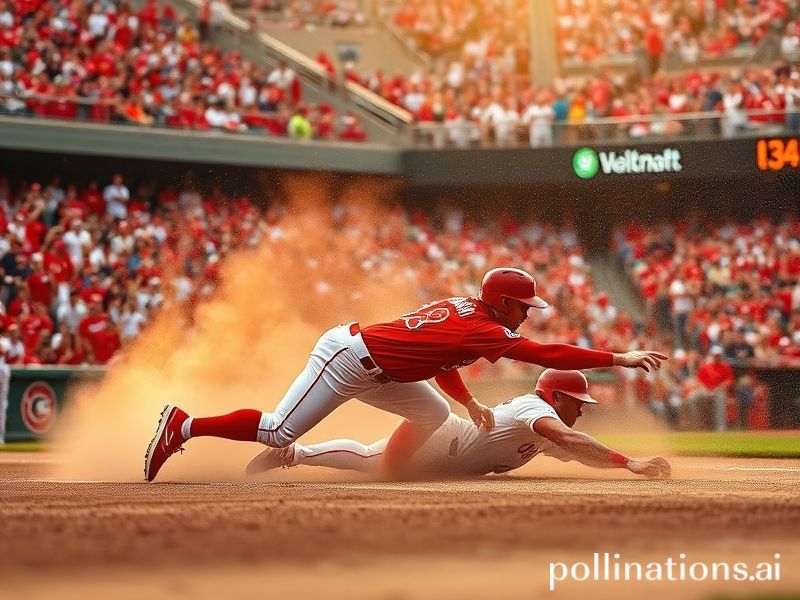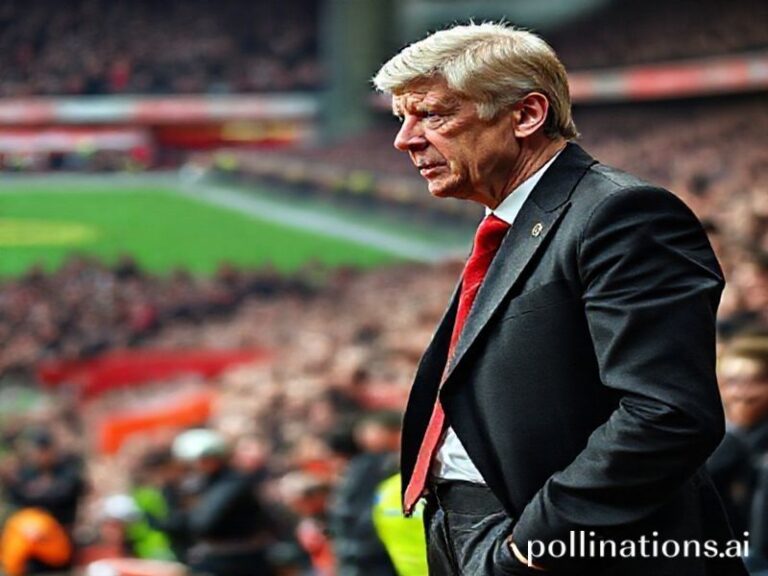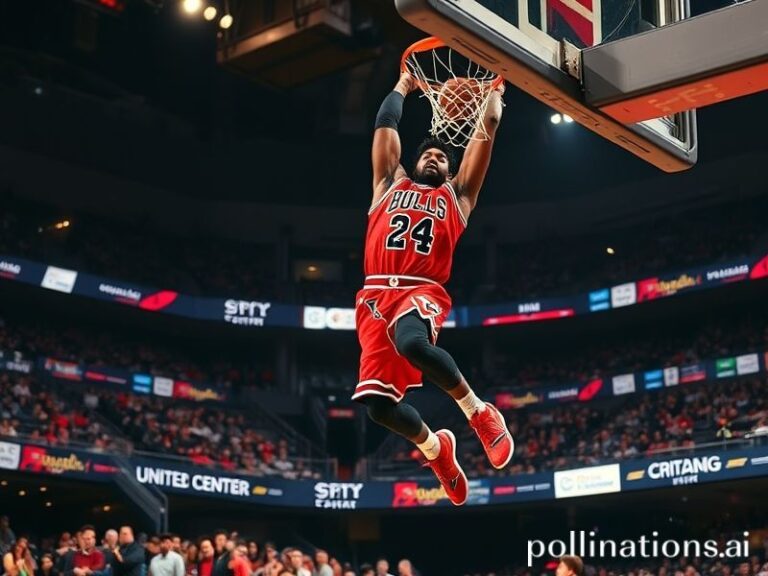Reds vs Cardinals: How a Midwestern Baseball Feud Became the World’s Favorite Distraction
Reds vs Cardinals: A Blood-Soaked Ode to Baseball, Bolshevism, and Birdwatching Gone Global
By the time the Cincinnati Reds and St. Louis Cardinals finish their three-game set at Busch Stadium, roughly 2.3 million viewers across 137 countries will have pressed pause on coups, heatwaves, and the slow-motion implosion of whatever remains of the global supply chain. In Jakarta, a futures trader toggles between the livestream and a Bloomberg terminal whose red candlesticks look suspiciously like the Cardinals’ jerseys. In Lagos, a ride-share driver keeps one earbud tuned to the crack of ash on cowhide while the other monitors WhatsApp rumors about tonight’s fuel-price riot. Baseball, that quaint pastoral pastime invented to distract American factory workers from tuberculosis, has become the planet’s most reliable white-noise generator—proof that when everything else is on fire, a 1-0 pitchers’ duel still feels like civilization.
The Reds, for the uninitiated, are the only franchise named after a political ideology that once terrified the very demographic now buying $11 craft lagers in the stadium named after a beer monolith. Their mascot is a mustachioed gentleman who looks like he sells artisanal mustache wax on Etsy, and their current payroll is roughly one-seventh of what Manchester United spends on weekly post-match aromatherapy. The Cardinals, meanwhile, have weaponized Midwestern politeness into a dynasty: 11 World Series titles, a farm system that could probably outvote the UN Security Council, and a fan base that regards losing as a moral failure akin to overcooking brisket.
What makes this particular showdown globally resonant is not the scoreboard but the symbology. Reds: the color of revolution, debt alarms, and every flag ever waved at a protest. Cardinals: the color of papal authority, arterial spray, and all those “SALE” signs that lure you into buying another television you can’t afford. Between them sits America’s longitudinal spine, a flyover corridor that exports corn, conspiracy theories, and—via MLB.TV—an endless loop of sun-drenched nihilism.
Overseas audiences don’t watch for the subtleties of the shift defense; they watch because the games arrive like state-sponsored mood stabilizers. Tokyo salarymen time their cigarette breaks to Joey Votto’s plate appearances. Syrian refugee camps in Turkey stream the broadcast on a cracked laptop powered by a car battery and collective denial. Somewhere in the South China Sea, a Filipino seafarer on a container ship the size of Luxembourg listens on shortwave radio, translating every “atta boy!” into Tagalog profanity. The announcers speak of batting averages; the world hears the gentle thrum of normalcy, a sonic balm against drone strikes and algorithmic unemployment.
Of course, the romantic gloss dissolves on contact with reality. Ticket prices now outpace median household income in half the countries tuning in. The baseball itself is juiced tighter than a hedge-fund manager’s alibi, and both bullpens feature relievers whose sliders break sharper than the global south’s climate graphs. Even the stadium organ plays a jazzy riff on “The Internationale” before segueing into a crypto-exchange jingle.
Yet every once in a while the spectacle crystallizes into something sublime: a rookie from the Dominican Republic—who sent 60% of his signing bonus back to a village where potable water is aspirational—laces a double off the wall. The crowd, momentarily forgetting the existential dread baked into their $14 nachos, rises as one. In that instant, viewers from Caracas to Kyiv experience the same involuntary spasm of hope, a reminder that humans can still synchronize their heartbeats around trivial beauty.
By the ninth inning, the Reds will probably have stranded enough runners to populate a small EU nation, and the Cardinals’ closer will celebrate a save by pouring champagne that costs more per ounce than the average Sri Lankan monthly wage. Somewhere, a Latvian teenager will close his illegal stream and rejoin a family dinner where the main topic is whether heating oil will outlast grandma. He’ll carry with him the echo of a crackling bat, a sound indistinguishable from tomorrow’s breaking news.
Baseball, after all, is not a metaphor for life; it is life, condensed into nine innings and a merchandising agreement. And somewhere between the red clay and the cardinal sin of charging admission, the planet keeps spinning—improbably, indefensibly, and just fast enough to outrun the score.







